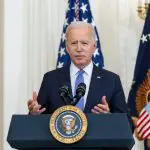As January 20, 2025, approaches, President-elect Donald Trump is making headlines by aggressively filling his cabinet with nominees that signal his readiness to lead. Among the recent choices is Monica Crowley, the no-nonsense former TV anchor, who has been nominated for a key position at the State Department. This is all part of a clear strategy from Trump to assert his influence over global affairs even before he officially takes office.
In stark contrast to Trump’s proactive approach, President Biden seems preoccupied with his costly support for Ukraine, having recently requested an additional $24 billion for the war effort against Russia. This, of course, comes after American taxpayers already forked over $725 million for military aid just days prior. It’s almost as if Biden is trying to diffuse a ticking financial bomb right before he exits the political stage. The irony of sending such staggering amounts of money overseas while the U.S. faces domestic challenges is lost on the current administration.
The breakdown of Biden’s proposed aid causes concern. It includes $8 billion earmarked for military assistance and training for Ukraine as well as a hefty $16 billion for the Department of Defense to replenish its stockpiles. With dwindling reserves, it begs the question: how much longer can the Biden administration justify this financial hemorrhage? Those in Trump’s orbit are likely breathing a sigh of relief at this premature spending spree, viewing it as an Achilles’ heel for the incoming administration.
WATCH: Speaker Johnson Just Weighed In on Biden Demand for More Cash for Ukraine Before Trump 2.0 https://t.co/caHPlvw5z9
— Brett Murphy (PatriotPointman) (@PatriotPointman) December 4, 2024
House Speaker Mike Johnson has made it abundantly clear that this financial free-for-all for Ukraine is hitting a brick wall now that Republicans are back in the driver’s seat. Johnson confirmed in a recent press briefing that any further funds for Ukraine are off the table, emphasizing that it’s a new day with a newly elected president. The implications of this significant shift in priorities cannot be overstated; Trump’s arrival will undoubtedly shake up the status quo.
As Trump prepares for his second term, he seems more interested in negotiating peace than writing checks. It appears that Biden’s grand spending vision will take a backseat to a more pragmatic approach—one that resonates with conservative values focused on fiscal responsibility and America First policies. The landscape is changing, and given the traction Trump has gained even before his inauguration, it will be fascinating to witness how America’s foreign aid landscape will evolve under his leadership. The Biden administration’s attempts to control the narrative now face the harsh reality of an incoming president who has different plans.




